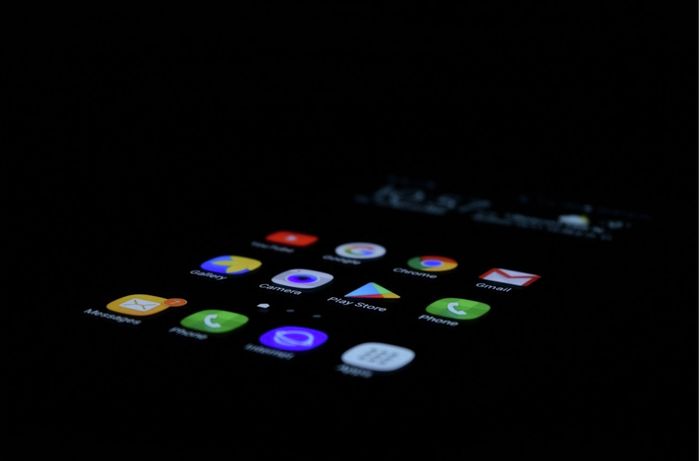Why is romance subplot in The Hunger Games so important?
Ellie Smith examines the importance of love in a political YA story

I have been a Hunger Games fanatic since the age of 11; I am now 20, and my fascination with the novel and film franchise has failed to subside. In the wake of the release of the latest novelistic instalment Sunrise on the Reaping (2025), it may be time to reexamine these films: did their dystopian political warnings ever resonate with its audience? Was the romantic subplot an attempt to convert us into mere Capitol citizens?
“Was the romantic subplot an attempt to convert us into mere Capitol citizens?”
When I was younger, I would watch and read The Hunger Games (2012) and its sequels, and have one overarching thought: “Peeta and Katniss are so cute together.” I would cry at Rue’s death, anxiously anticipate Snow’s execution, gasp when Katniss assassinated Coin, marvel at the Quarter Quell arena. But ultimately, I cared more about Katniss and Peeta’s relationship, and how it would morph, shape and endure through each hurdle. This was not an uncommon sentiment: 2014 tumblr was rife with fan edits of the pair and the infamous love triangle, which, in the wake of Twilight (2008), automatically assumed its status as the cornucopia of fangirl culture. But why does a series which doesn’t necessarily ‘need’ a romantic storyline still have one?
The Hunger Games had to be drip-fed to its audience, and the romance subplot was necessary to prevent an overflow of political ‘propaganda’. The books were made into films, the films more likely to be seen by a much wider audience. These films were then marketed to the young adult population who would have been well acquainted with the Twilight franchise. People would enter into the world of The Hunger Games through the cinema, most for the first time, with romance-seeking expectations. Even those watching the films with no prior exposure to young adult cinema would most likely have grown up watching Disney and reading fairy tales. If romance is ingrained in our everyday lives, why shouldn’t it be ingrained within a dystopian life? We’ve been allowed room to mature into the film’s political commentary through rewatches, and this wouldn’t have been made possible if the pathway wasn’t carved out by Peeta and Katniss’ romance. The romance which started out as a strategy to survive the games for Katniss and Peeta was also a strategy working to capture and keep hold of the audience.
“If romance is ingrained in our everyday lives, why shouldn’t it be ingrained within a dystopian life?”
One of my favourite scenes takes place in Catching Fire (2014), which is arguably the best film out of the five that have been released. On the beach of the arena sit Katniss and Peeta, as they discuss Beetee’s plan – the plan that will cause the spark of the rebellion to erupt. They both fret over what happens if Beetee’s plan succeeds, and what that means for each allyship – who will turn on whom, and when. They ponder over which one of them needs to walk out of the arena alive, Peeta surrendering that “no one” needs him, before Katniss tells him no: she needs him. But if only one victor can walk out of this arena alive, then Katniss can’t have Peeta, and vice versa. Before, I perceived this as a scene of pure romance, but that’s not all this is. This is romance occurring in gloomy dusk actively ushering in the night where only death or rebellion are to be faced. This scene does not occur as a result of turmoil, but in spite of it. It is not Beetee’s plan which will ignite the rebellion, but flammable human connection that the tyrannical Capitol cannot understand nor overcome. As an audience, this romantic ignition allows the film’s active fight for social change to spread, with time, into our own world.
So maybe, once upon a time, I was no better than a Capitol citizen. Crying when I was told to cry, cheering and happy when my ‘ship’ became canon and marvelling at the costume and set design within and around the arenas. And it is all too easy to compartmentalise these films into a box of fiction, relieving any moral guilt over entertainment these films elicit. But our current society (especially in America) has become all too similar to that of Panem: Donald Trump resembles President Snow; class divisions have become harder to cross; we marvel at celebrities the same way the Capitol marvels at the tributes. These questions of “why do I care about the romantic subplots?” may therefore force us to question our morals and priorities, but ultimately, we have to embrace the importance of romantic and platonic connections instead of critiquing our desire for them. We have to have hope, because, after all, “hope is the only thing stronger than fear.”
Want to share your thoughts on this article? Send us a letter to letters@varsity.co.uk or by using this form
 News / Uni to ‘review’ tripos rankings and weekend lectures in undergrad teaching overhaul10 April 2025
News / Uni to ‘review’ tripos rankings and weekend lectures in undergrad teaching overhaul10 April 2025 News / Rowing row continues as Oxford and Cambridge scrap women’s trial race9 April 2025
News / Rowing row continues as Oxford and Cambridge scrap women’s trial race9 April 2025 News / PETA urges Cambridge dictionary to change ‘derogatory’ rat definition11 April 2025
News / PETA urges Cambridge dictionary to change ‘derogatory’ rat definition11 April 2025 News / First candidate to announce chancellorship bid pledges to tackle bullying 12 April 2025
News / First candidate to announce chancellorship bid pledges to tackle bullying 12 April 2025 Lifestyle / Blind Date: ‘She owes me a round of drinks!’13 April 2025
Lifestyle / Blind Date: ‘She owes me a round of drinks!’13 April 2025




